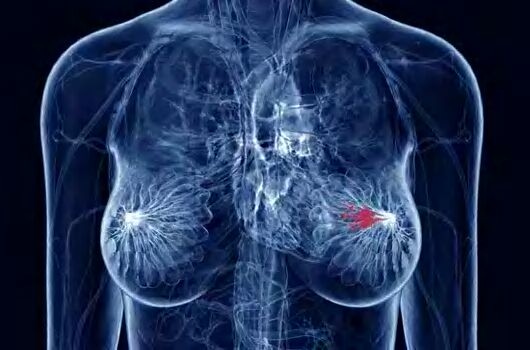A new study by researchers at Queen Mary University of London’s Center for Cancer Prevention has proven that the cancer drug Arimidex (aka anastrozole) is effective in reducing the risk of breast cancer by 53% in postmenopausal women. The finding, based on a trial involving 4,000 women at high risk for the disease is scheduled for presentation next Thursday at the San Antonio Breast Cancer Symposium in Texas.
According to lead author and head of the Cancer Research U.K. Centre for Cancer Prevention and director of the Wolfson Institute of Preventive Medicine at Queen Mary University Jack Cuzick, “Two other anti-hormone therapies, tamoxifen and raloxifene, are used by some women to prevent breast cancer, but these drugs are not as effective and can have adverse side effects, which limit their use. Hopefully, our findings will lead to an alternative prevention therapy with fewer side effects for postmenopausal women at high risk for developing breast cancer.
Breast cancer is the most common form of cancer for women, and it is now estimated that approximately 80% of those suffering from the disease here in the US have tumors with high levels of hormone receptors fueled by the hormone estrogen. Arimidex’s effectiveness lies in the fact that it blocks the body from making estrogen.
Cuzick’s research included more than 4,000 postmenopausal women at increased risk for breast cancer due to having two or more blood relatives with breast cancer, having a mother or sister who developed breast cancer before age 50, or having a mother or sister who had breast cancer in both breasts. About 2,000 of them were given Arimidex for five years while the others took a placebo. In the end, those who took the drug were found to be 53% percent less likely to develop breast cancer than those who took the dummy medication. Side effects for them included hot flashes and small increases in muscle aches and pains.
“This is very exciting information, and it is great to have a less toxic option to offer patients in the preventative arena,” stated Dr. Amy Tiersten, associate professor of medicine at the Icahn School of Medicine at Mount Sinai, in Manhattan. “Although tamoxifen and raloxifene can also cut a woman’s odds for breast cancer, these medications can slightly increase the risk of blood clots.”
Note: It should be pointed out that Cuzick’s study received funding from the drug companies AstraZeneca (maker of Arimidex) and Sanofi-Aventis, and that he is on AstaZeneca’s speaker’s bureau.








